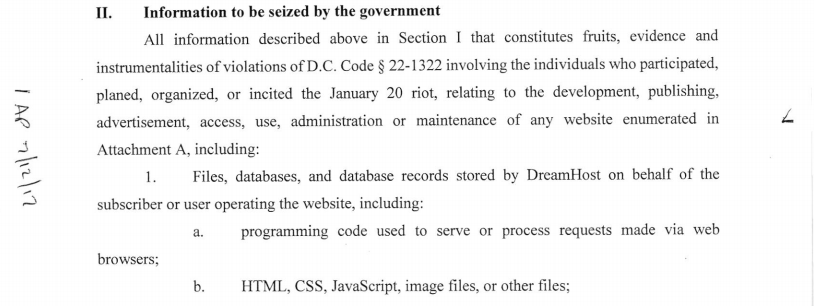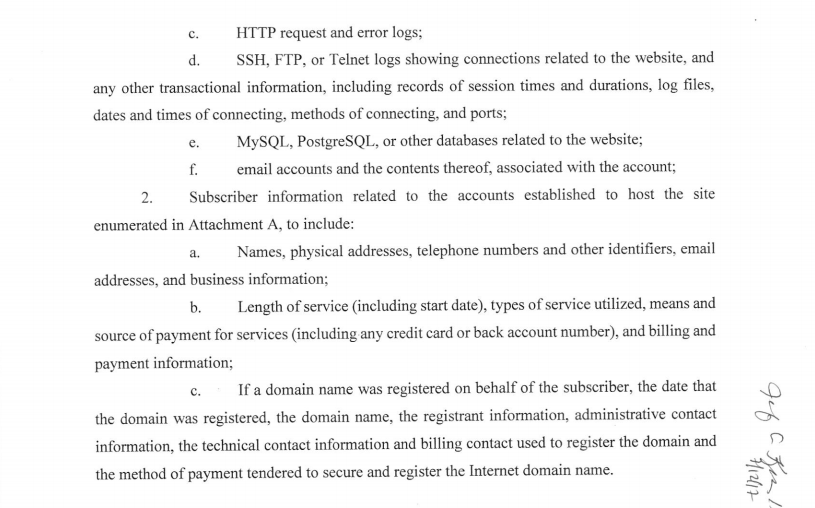A website used to organize inauguration protests on January 20, 2017, in Washington, D.C. is now the target of a request for data by the U.S. government that is unusual—and, says one legal analyst, “chilling.”
After pursuing legal action against about 200 protesters and attempting to extract data from 100 locked phones seized during the event, the Justice Dept. is now seeking to identify other participants with a demand to the web hosting company DreamHost: turn over the 1.3 million IP addresses of the computers that visited disruptj20.org, along with the contact information, submitted comments, email content, and photos of thousands of people.
The L.A.-based web hosting service received the government’s warrant on July 20, and objected to it the next day, The Hill reports. “That information could be used to identify any individuals who used this site to exercise and express political speech protected under the Constitution’s First Amendment,” the company wrote in a blog post on Monday. “That should be enough to set alarm bells off in anyone’s mind.”


The company also says it notified one customer of the pending warrant on their account. In a motion, prosecutors argued that DreamHost offered no basis for claiming the warrant is overly broad. A hearing is scheduled for Friday in Washington.
“If you visited the site, if you left a message, they want to know who and where you are—whether or not you did anything but watch TV on inauguration day,” wrote Ken White, an attorney who blogs at Popehat.com. “This is chilling, particularly when it comes from an administration that has expressed so much overt hostility to protesters, so relentlessly conflated all protesters with those who break the law, and so deliberately framed America as being at war with the administration’s domestic enemies.”
As The Register observes, such a broad request isn’t completely without precedent. “The Department of Justice has a history of asking for everything, and then accepting something less if there’s resistance, which doesn’t happen all the time. In 2006, for example, the DoJ sought search records from at least 34 internet service providers in a quixotic effort to uphold the doomed 1998 Child Online Protection Act (COPA).”
Recognize your brand’s excellence by applying to this year’s Brands That Matter Awards before the early-rate deadline, May 3.